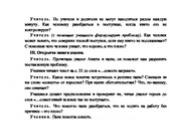Typhoid vaccine contraindications. Typhoid vaccination. Other measures to prevent typhoid fever
We are vaccinated against typhoid fever. Safe, fast, in 7 districts of St. Petersburg.
Typhoid fever is a severe intestinal infection caused by the Salmonella bacterium that affects the intestines. The disease proceeds in an acute form, often with relapses, and is manifested by prolonged fever, diarrhea and general intoxication of the body. Complications of typhoid fever are life-threatening, as they can cause intestinal ulcers, intra-abdominal bleeding, and toxic shock.
The most common way the disease is transmitted is through household contact with a sick person or through water. To reduce the risk of infection, careful hygiene is necessary, but even in this case, the risk of getting sick remains. The best way to protect against infection is the typhoid vaccine, which allows you to acquire strong immunity in 80% of cases.
Other names: typhoid vaccination, typhoid immunoprophylaxis
Who needs to be vaccinated against typhoid and when?
At risk are people who are in direct contact with patients. The situation is complicated by the fact that the symptoms of infection appear only 2-3 weeks after infection, and the fact of the disease may be implicit.
Individuals most at risk of contracting typhoid fever:
- living in regions endemic for typhoid fever (including those with single outbreaks)
- traveling to dangerous regions (states of Africa, Asia, South America, etc.)
- employed in the field of public utilities (water sewerage, work with household waste, etc.)
- healthcare workers involved in decontamination of infectious zones during outbreaks of typhoid fever
- vaccine laboratory workers
- other cases involving contact with sick people.
How is typhoid vaccination administered?
The vaccine is administered intramuscularly or under the skin in the upper arm once. The vaccine provides immunity against typhoid fever for 3 years. If the risk of infection persists after this period, the vaccination is repeated.
Are there any contraindications to vaccination?
There are no specific contraindications to typhoid vaccination. It is worth discussing with your doctor the expediency of vaccination in cases of exacerbation of diseases, allergic reactions and general weakness of the body.
Direct contraindications to any vaccinations are serious illnesses (such as HIV, tuberculosis, etc.), pregnancy and intolerance to the components of the vaccine.
What documents are required for measles vaccination?
In the centers of the Medical Board No. 1, only a passport is required. Take with you, if available, a vaccination certificate with information about previous vaccinations.
Where and when can you apply?
You can get vaccinated against typhoid fever at any convenient Medical Commission No. 1 center. We work in 7 districts of St. Petersburg and have all the necessary licenses for this type of activity. In our clinics, only proven safe vaccines are used, a doctor's consultation is provided.
Why is it worth contacting the "Medical Commission No. 1"?
Reliably- our centers have all the necessary licenses for this type of service. Vaccination is carried out by certified specialists with extensive experience. Only high quality products are used.
Fast– registration for the service is available by phone and on our website, where you can choose a convenient time and the nearest branch. The vaccination procedure and consultation with a therapist will take a few minutes.
Comfortable– our clinics are located in 7 districts of St. Petersburg and work seven days a week.
Miklukho-Maklay Russia, Moscow +7 495 735 88 99 +7 495 134 25 26
Leninsky Prospekt Russia, Moscow +7 495 735 88 77 +7 495 134 25 26
2017-03-09
Vaccination is part of the necessary preventive measures to help prevent the emergence and development of complex infectious diseases. The drug introduced into the body promotes the production of antibodies, which subsequently neutralize the virus and help prevent the disease.
Moscow "Doctor Anna" has official permission to carry out vaccination against typhoid fever and carries out procedures by appointment. Our experienced specialists know the key criteria for correct and safe vaccination.
The procedure helps prevent the development of a dangerous disease.
The infection poses a serious risk to life. It is transmitted through contaminated water and food.
The main symptoms of the disease:
- high temperature - up to 39-40 0 С;
- rash in the form of pink flat spots;
- weakness;
- severe fatigue;
- migraine;
- complete loss of appetite;
- stomach ache.
Timely vaccination against typhoid fever minimizes the risk of contracting this dangerous disease through contact with contaminated water.
Typhoid injection is indicated for people traveling abroad to areas with acute epidemiological risk.
The repeated procedure is carried out annually for three years, once in March-April. In this case, a temporary immunity is formed, which lasts about 5 years.
In the case of living or traveling to areas with a high incidence of tick vaccination should be repeated regularly.
In our clinic, prophylaxis is carried out with VIANVAK. This is a reliable and safe drug from a European manufacturer, which has already passed the necessary clinical studies and has shown high protection efficiency.
The vaccine is given once, injecting the drug into the upper third of the shoulder. Repeated procedure is shown after 3 years.
Immunasia requires a serious professional approach. To avoid complications after the injection, as well as to be sure of its effectiveness, we recommend that you have an injection in a private clinic. Practice shows that serious side effects are not observed after this vaccination, however, in some cases there may be individual intolerance to the components of the serum. In difficult situations, you may need to additionally consult an allergist.
The cost can be specified by phone on the site.
Make an appointment
Please enter your details
There are more than a dozen mandatory vaccinations in the National calendar, which you cannot do without. Almost everyone knows the list of vital vaccinations in our time. But there is another list of emergency drugs or that immunoprophylaxis, which is carried out in special cases. The typhoid vaccine is on the latest list.
When is the typhoid vaccine given? What vaccines are used? How is this vaccine tolerated and what should be done to make it pass without consequences?
Indications for vaccination
Is typhoid vaccination required? No, she will not be forced to do everything in a row in the clinic, as happens with basic vaccinations. It does not belong to the recommended type, when, on a paid basis, a doctor can advise to carry it out. In the countries of the post-Soviet space, people do not need vaccination against typhoid fever.
But there are times when it needs to be done. Who should be vaccinated against typhoid fever?
- The typhoid vaccine will be needed if you go on vacation to countries with frequent outbreaks of typhoid fever.
- It will be forced to be made by all laboratory workers involved in the creation of this vaccine or working with cell strains that cause the disease.
- To all health workers traveling to regions with epidemics of the disease.
- Vaccinate all people living in countries where outbreaks of typhoid fever are recorded at regular intervals.
- During the development of an epidemic or even in rare cases of the occurrence of single foci of the disease, vaccination is given to workers involved in the disinfection of infection zones - all those who carry out sewer work in the area, doctors working in medical institutions where they receive patients, etc.
- People living in an area with a reported case of infection can be vaccinated against typhoid, even if there have been no epidemics in the country in the past few years.

Which regions require typhoid vaccination? Outbreaks of the disease are recorded annually in South America, Africa and Asia. When traveling to countries from these regions, it is advisable to get vaccinated for your own safety.
Types of typhoid vaccines
Vaccination against the disease can only be scheduled in regions with frequent epidemics. Prevention of typhoid fever in our countries is most often carried out in emergency cases. But when will the vaccine start to work if it is needed in the near future before a trip to an exotic country?
The period of immune response to the introduction of typhoid vaccine is at least two weeks. That is, in the case of a trip abroad to countries that are dangerous for the disease, it is recommended to vaccinate at least 10 days before departure, and preferably 14 days before. And here there are some peculiarities - some drugs are intended only for planned prophylaxis, and a 100% effect after their administration appears only after 1-2 months. Therefore, before vaccinating against typhoid fever, be sure to check with your doctor which vaccine will be used for prophylaxis.
What types of vaccines are there? A few years ago, only three types of typhoid vaccines were vaccinated, and only from the age of 7 years. Today the situation has changed somewhat.
 There are three main types of vaccines against infection.
There are three main types of vaccines against infection.
- Live attenuated oral vaccine. An example is the Ty21a vaccine in capsule form.
- Inactivated injectable liquid vaccine: Vianvak, Tifim Vee.
- Dry vaccine "Tifivak" based on bacterial lyophilisate.
Each drug has its own individual characteristics. Today, a person has a choice - the vaccine can be done subcutaneously or it is enough to swallow a few capsules at certain intervals.
How is the typhoid vaccine given?
In the case of vaccination against this infection, it is pleasant to note that there are several types of administration of prophylactic drugs. They are suitable for emergency and planned prevention, which must be taken care of in advance.
How is typhoid fever prevented?

Which vaccine would you prefer? First of all, it all depends on the age. To prevent typhoid fever, children use injectable vaccines, but not earlier than three years of age. In emergency cases, it is better to use a bacteriophage.
Reactions and side effects to the vaccine
In general, vaccination is well tolerated. Side effects on all of the above drugs almost never occur. But there are also unforeseen situations when the human body specifically reacted to the introduction of a protective drug.

What reaction of the body can be expected from vaccination?
- After vaccination, there may be a slight increase in temperature up to 37.5 ºC.
- Sometimes a local reaction manifests itself in the form of slight redness and swelling at the injection site.
- The general reaction of the body to the vaccination in the form of weakness, dizziness, slight apathy.
- After vaccination, an allergic reaction to one of the components of the drug may occur in the form of a rash in the area of its injection or on the whole body.
- In severe cases, shock is possible.
Side effects of the typhoid vaccine include nausea, headaches, abdominal pain, and fever.
All of the above reactions bother a person for a short time and pass on their own within 1-2 days. In rare cases, you have to take anti-inflammatory or antipyretic drugs.
How to avoid unwanted reactions
 To avoid or minimize possible reactions to typhoid vaccination, vaccination should be prepared in advance.
To avoid or minimize possible reactions to typhoid vaccination, vaccination should be prepared in advance.
- To avoid a false reaction in the form of a rash, do not eat unusual dishes and do not introduce exotic foods into the diet before and after vaccination.
- Before and after vaccination, you do not need to visit crowded places.
- After vaccination, stay under the supervision of doctors for 30-40 minutes. Do not leave the clinic at this time, so that in case of an acute reaction, you will receive emergency assistance.
- On the day of the vaccination, it is better to avoid drinking alcoholic beverages.
- Swimming is allowed, but not in public waters. And rubbing the injection site is also undesirable.
- If many substances cause allergic reactions, then it is necessary to tell the doctor and, if possible, stock up on anti-allergic and anti-inflammatory drugs.
- In the case when a person is vaccinated with oral typhoid vaccines and there is a reaction to the next capsule, the prophylaxis must be stopped.
Contraindications
Who is not vaccinated? Of course, this applies to countries with foci of infection and population groups that have to do immunoprophylaxis in connection with the current epidemic situation for typhoid fever.
 The typhoid vaccine is not indicated for the following people:
The typhoid vaccine is not indicated for the following people:
- babies under two years of age are not prescribed protective drugs against infection;
- pregnant women and nursing mothers;
- during an exacerbation of chronic diseases or acute infections, vaccination is not indicated;
- who had a reaction to a previous vaccination;
- if a person has severe diseases of the circulatory system, liver and biliary tract;
- with renal failure;
- live vaccines are not indicated if a person has any diseases accompanied by a deterioration in the functioning of the immune system (oncology, diseases of the thyroid gland, blood systems, HIV infection);
- lyophilisate of bacteria is not prescribed for children under 15 years of age.
In any case, it is important to read the instructions before vaccination, because vaccines are produced by different companies, so contraindications may vary.
Where to get vaccinated
In the case of a planned vaccination against typhoid fever, the vaccination is done at a polyclinic or outpatient clinic at the place of residence. This is more true for countries where the disease is recorded constantly. There I plan immunoprophylaxis in advance.
 How and where to get vaccinated if you have a business trip or a tourist trip to countries with an unstable epidemic situation for typhoid fever? Where to turn for help in such cases? The first doctor to visit is the GP. He will conduct a full examination and determine the presence of contraindications. Then, if there is an infectious disease specialist in the clinic, he will be engaged in vaccination.
How and where to get vaccinated if you have a business trip or a tourist trip to countries with an unstable epidemic situation for typhoid fever? Where to turn for help in such cases? The first doctor to visit is the GP. He will conduct a full examination and determine the presence of contraindications. Then, if there is an infectious disease specialist in the clinic, he will be engaged in vaccination.
What to do if there is no vaccine in the clinic? How to vaccinate against typhoid fever for adults and children in this case? If time allows, the necessary drug will be ordered and brought to the clinic. Or you can buy the vaccine yourself at a paid clinic.
Who should be vaccinated against typhoid fever and is it needed at all? Vaccination is needed, but not for everyone, but only for certain categories of citizens and only during the period of infection. In our country, such immunoprophylaxis is mainly done by tourists who go on vacation to exotic countries. Before vaccination, it is important not only to familiarize yourself with contraindications - you need to consult a doctor about all possible drugs in order to choose your convenient and optimal one.
A noticeable decrease in the prevalence of typhoid fever is the result of improved living conditions in many countries of the world. However, the bacillus Salmonella enterica, which causes outbreaks of the disease, remains a serious enemy of mankind.
Vaccination against typhoid bacillus is not listed in the National Immunization Schedule. But sometimes emergency immunoprophylaxis is still performed.
Indications for immunization
Against typhoid fever should be vaccinated with a vaccine - a group of people:
- employees of research laboratories involved in the creation of vaccines using pathogen strains;
- participants in measures to decontaminate infection zones during an epidemic or in the event of single foci of the disease (health workers, employees of water and sewer services, etc.);
- population of regions in which typhoid fever is periodically recorded;
- residents of an area where even just one case of bacillus infection was noted, despite the fact that in the previous few years there were no epidemics in the country;
- tourists who have gathered to visit the states of Africa, Asia, South America, dangerous for epidemic indications.
Contraindications to immunization
It is forbidden to vaccinate against typhoid fever:
- suffering from renal insufficiency, severe disorders in the circulatory system, the work of the thyroid gland;
- patients with diseases of the endocrine system, liver and bile ducts; with SARS and other infections; with exacerbation of chronic diseases;
- persons with a negative reaction to the ingredients of the immunobiological preparation;
- children under 2 years old - a child who has not reached this age is still too small and it is too early for him to use these types of vaccines;
- women who are expecting a child or breastfeeding.
cancer patients, -infected;

If available, vaccination is carried out after a month of stable remission.
Types of Vaccines
To prevent infection with typhoid fever contribute:
- Liquid Vi-polysaccharide vaccine "Vianvak" (LLC "GRITVAK", Russia), containing neutralized polysaccharides obtained from the shell of the microbe. Designed for adults and children from 3 years old. Single dosage - 0.5 ml. The drug is administered as a single injection under the skin in the upper third of the shoulder. The immune response is formed in 7-14 days. Immunity to typhoid fever persists for 3 years, after which a second vaccination is carried out.
- Amorphous white powder "Tifivak" (Federal State Unitary Enterprise SPbNIIVS FMBA, Russia), containing microbial cells of S. typhi Tu-2 No. 4446 attenuated with ethyl alcohol. Available in ampoules of 1.0 ml. Transparent solvent (isotonic liquid) is packaged in 5.0 ml ampoules. The dissolved powder turns into a light gray suspension without foreign inclusions. Applies to 18 years of age; children from 5 years old - only after a medical consultation.
- Vi-polysaccharide solution "Tifim Vi" ("Sanofi Pasteur", France) with the active substance - the capsular antigen of the bacterium Salmonella typhi. The drug is effective during the most large-scale immunization events. Applicable for all age groups, incl. kids over 5 years old. Vaccination for a child aged 2-5 years is allowed only on the basis of the results of an examination by a specialist. The volume for a single injection is 0.5 ml. Subcutaneous or intramuscular injection is carried out once; the body's production of antigens to typhoid salmonella reaches a maximum - 2-3 weeks. The second vaccination is 3 years later.
- Oral agent, which is an avirulent mutant strain of TY-21A. Produced in England, Germany, South Korea under license from the manufacturing company Swzss Serum and Vaccine Institute. When examining the peripheral blood of the vaccinated, O-specific IgA-producers were found, which proves the effectiveness of TY-21A. Dosage form of the vaccine: gelatin capsules. In case of emergency, take 4 capsules (one every other day). Repeated prophylactic reception - after 5 years.
Pharmaceutical injections are made twice in the subscapular region subcutaneously. The interval between injections is 25-35 days. The first dose is 0.5 ml; the second - 1.0 ml. The maximum level of antibodies to typhoid fever in the body is formed a week after the introduction of MIBP. After 2 years, re-injection is performed with a dosage of 1.0 ml.

The attenuated auxotrophic CVD 909 mutant, whose immunogenicity turned out to be very high, can be attributed to the latest generation of vaccines and their constructs. Appointed after a medical examination.
Side effects
Possible reactions to the vaccine and the presence of inactivated microbes or their particles introduced into the body depend on the general condition of the person, but in general the picture may look like this:
- fever (antipyretic is prescribed);
- lethargy, drowsiness;
- headache (lasts about 48 hours);
- nausea, vomiting;
- redness, formation of an infiltrate at the injection site (up to the occurrence of lymphangitis and lymphadenitis) with a diameter of over 50 mm, which is regarded as a strong response to the presence of pathogens.
All these negative phenomena will disturb a person after the introduction of the vaccine for an average of 3-4 days, and then disappear.
The rarest accident can be called the fact that sometimes anaphylactic shock develops.
Conclusion
According to experts, Salmonella of all varieties show extraordinary resistance even to the latest antibiotics. Therefore, treatment has become extremely complicated and is now very expensive. The choice of a valid vaccine is in the first place. Not every drug helps the same.
For a child, it is best to choose a vaccine on the recommendation of a doctor. Based on his experience, the most optimal drug will be determined for which vaccination can be done. If time is catastrophically short, then in such a situation the only right decision is to take prompt preventive measures. Get vaccinated once using the Vianvak or Tifim-vi vaccine. And then the danger of contracting typhoid fever will decrease sharply, because. immune protection will be valid for three years.




